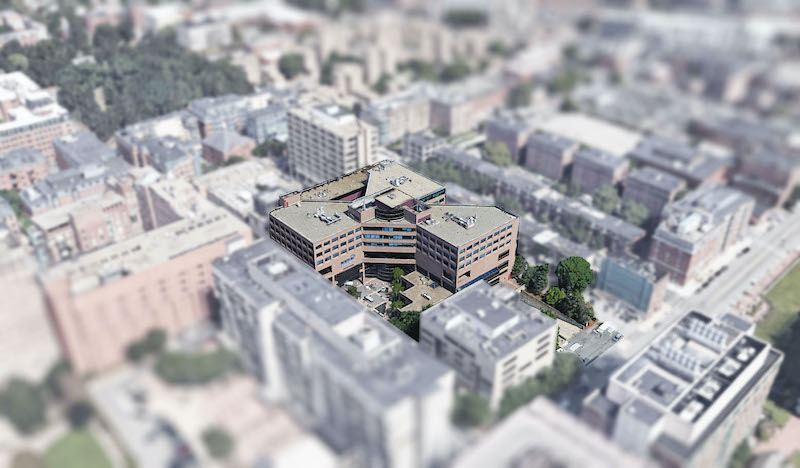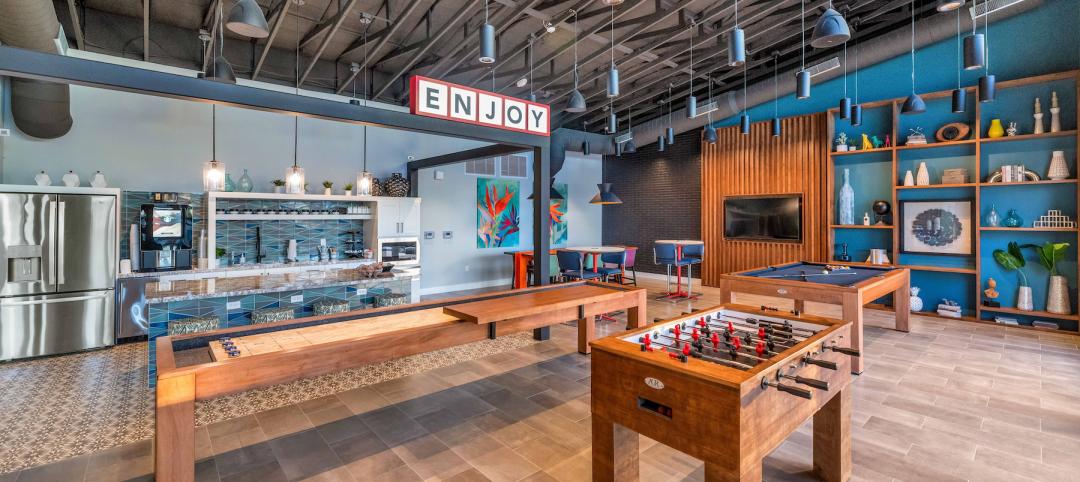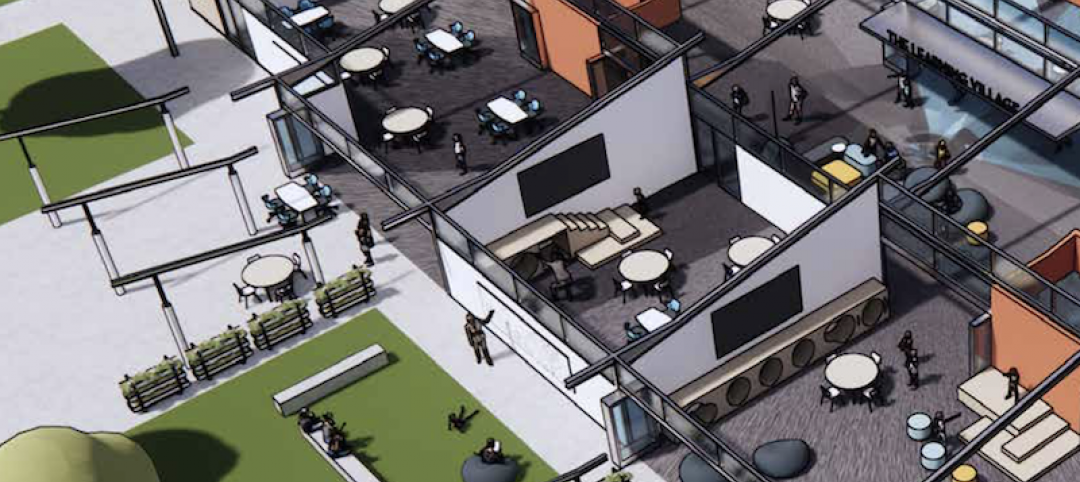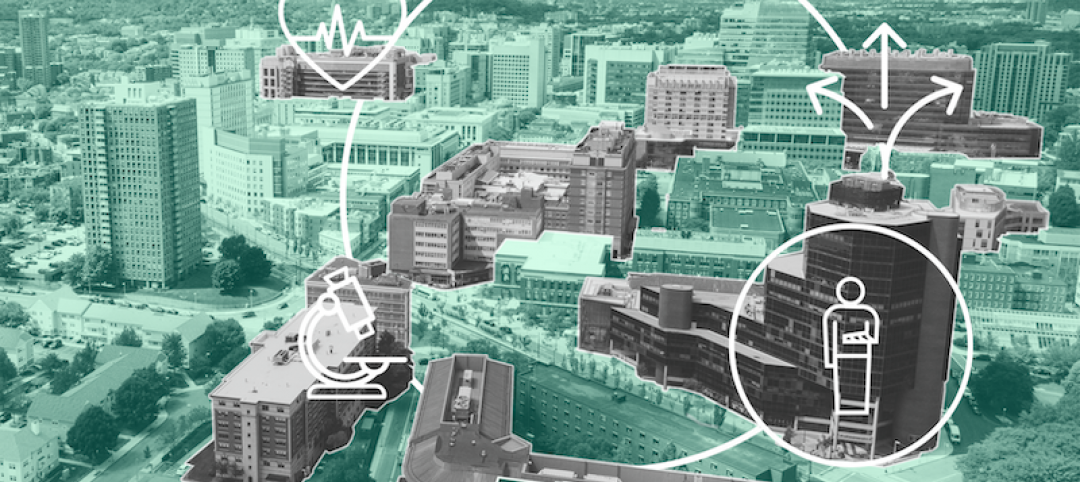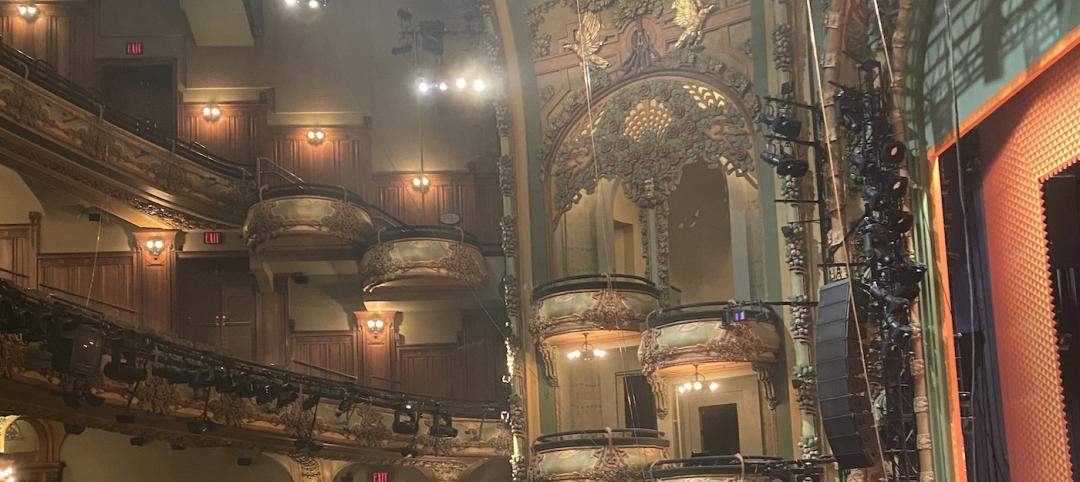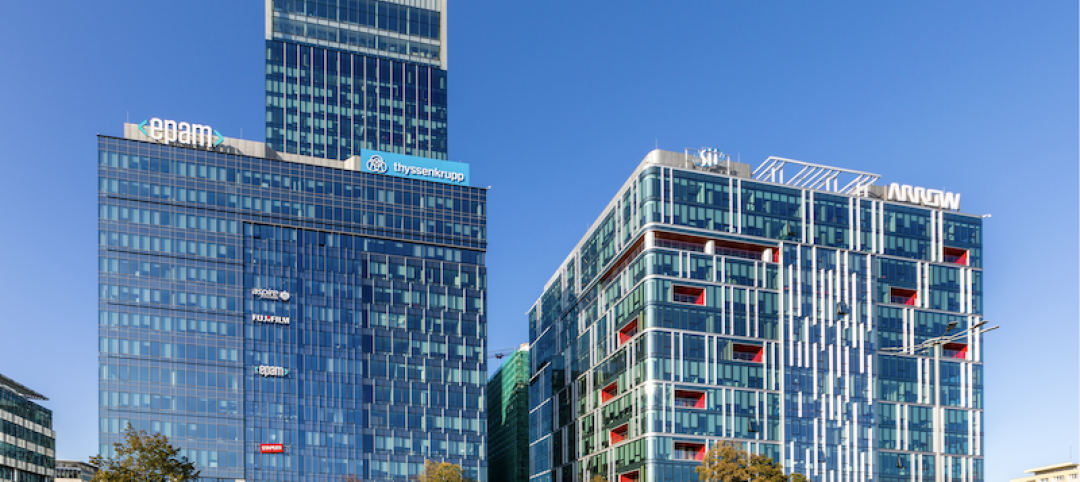The S/L/A/M Collaborative, Boston Studio (SLAM) and Gilbane Building Company (Gilbane), in partnership with the Massachusetts Division of Capital Asset Management & Maintenance (DCAMM), Boston Medical Center (BMC), Boston Healthcare for the Homeless, the Department of Public Health, led the technical planning, design and construction of a temporary quarantine shelter in response to the COVID-19 pandemic. The facility has a maximum capacity of up to 304 non-acute beds for Boston-area homeless at the former Newton Pavilion previously managed by Boston Medical Center at 88 E. Newton Street in Boston, MA.
The Newton Pavilion has been a shuttered hospital facility since October 29, 2018. SLAM and Gilbane were contracted by the current building owner, DCAMM, to assist them in assessing the building and devising an occupancy plan to convert the space for homeless patients who are not in need of acute hospitalization, yet test positive for the coronavirus, but are a-symptomatic or showing mild symptoms with orders to quarantine at home.
The coordination and focused effort to ready the Newton Pavilion for occupancy on April 9, 2020, required full-day meetings over a 28-day period held between DCAMM, BMC, Gilbane, and the SLAM design team, led by Senior Associate Loren Belida, AIA and Gilbane’s Senior Project Executive Jim Dabrowski. Following the Army Corps of Engineers review and swift approval of the occupancy plan demonstrating SLAM’s technical expertise and in-depth work in healthcare programming and planning, Gilbane was able to rapidly mobilize on-site and deliver the facility ahead of schedule.
“DCAMM was ahead of the curve when asked what it would take to temporarily re-open the “mothballed” facility” said Carol Gladstone, DCAMM Commissioner, “The project team quickly developed a very comprehensive and integrated execution plan that involved splitting construction scope between our internal team and Gilbane. I had extremely high confidence that we could rise to the challenge and deliver in a short timeframe.”
BMC will manage operations for the temporary facility and patient care will be administered by their clinical staff. The total re-occupied project area makes up approximately 166,500-square feet, spanning eight floors and the overall project scope includes the reactivation/upgrade to building systems including life safety, HVAC, fire protection, plumbing, fire protection, medical gasses, electrical and architectural upgrades.
“Gilbane is grateful for the opportunity to work on this critical project delivered by this incredibly dedicated team. Our team and subcontractor partners worked three shifts, working literally 24 hours a day to deliver this much-needed facility ahead of schedule. We’re honored to be of service to the Commonwealth and its citizens at this time of great need”, said Mike O’Brien, vice president, Massachusetts business unit leader.
SLAM and Gilbane have partnered on more than 40 projects throughout New England and across the country.
“The project team understood from day one that reinvigorating the space and systems of a “mothballed” hospital would require expertise, proactivity, coordination, and flexibility,” says Gabriel Comstock, AIA, lead healthcare planner and design architect, SLAM Boston Studio. “From the Commonwealth to the subcontractors, I’ve never seen a purer example of unyielding technical collaboration and speed to serve the most vulnerable populations at a more critical time in our community.”
Related Stories
Multifamily Housing | Jul 7, 2021
Make sure to get your multifamily amenities mix right
One of the hardest decisions multifamily developers and their design teams have to make is what mix of amenities they’re going to put into each project. A lot of squiggly factors go into that decision: the type of community, the geographic market, local recreation preferences, climate/weather conditions, physical parameters, and of course the budget. The permutations are mind-boggling.
Multifamily Housing | Jun 30, 2021
A post-pandemic ‘new normal’ for apartment buildings
Grimm + Parker’s vision foresees buildings with rentable offices and refrigerated package storage.
Multifamily Housing | Jun 23, 2021
COVID-19’s impact on multifamily amenities
Multifamily project teams had to scramble to accommodate the overwhelming demand for work-from-home spaces for adults and study spaces for children.
K-12 Schools | Jun 20, 2021
Los Angeles County issues design guidelines for extending PreK-12 learning to the outdoors
The report covers everything from funding and site prep recommendations to whether large rocks can be used as seating.
Coronavirus | May 17, 2021
Future pandemic preparedness at the medical district scale
The current COVID-19 pandemic highlights the concern that we will see more emergency events in the coming years.
University Buildings | Apr 29, 2021
The Weekly Show, April 29, 2021: COVID-19's impact on campus planning, and bird management strategies
This week on The Weekly show, BD+C Senior Editor John Caulfield interviews a duo of industry experts on 1) how campus planning has changed during the pandemic and 2) managing bird infestations on construction sites and completed buildings.
Multifamily Housing | Apr 22, 2021
The Weekly Show, Apr 22, 2021: COVID-19's impact on multifamily amenities
This week on The Weekly show, BD+C's Robert Cassidy speaks with three multifamily design experts about the impact of COVID-19 on apartment and condo amenities, based on the 2021 Multifamily Amenities Survey.
Industry Research | Apr 9, 2021
BD+C exclusive research: What building owners want from AEC firms
BD+C’s first-ever owners’ survey finds them focused on improving buildings’ performance for higher investment returns.
Coronavirus | Mar 31, 2021
Theatrical fog formula approved as antimicrobial air treatment
At least two solutions are being used to make ventilation systems safer.
Office Buildings | Mar 30, 2021
WELL Institute certifies a gigantic office complex with its highest health and safety rating
Poland’s Olivia Business Center one of the first to install ion air purification devices.


